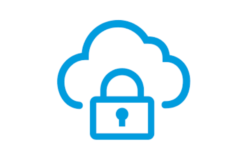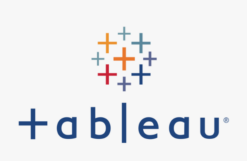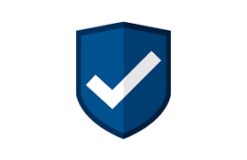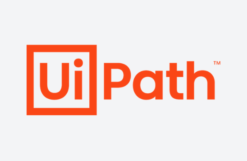Duration: 5 days – 35 hrs
Overview
The “CMS using Java Liferay Training” is a comprehensive program designed to equip participants with the knowledge and skills needed to create, customize, and manage web content using Java and the Liferay content management system. This training provides a practical and hands-on approach to developing web portals, websites, and intranets, making it ideal for developers, IT professionals, and organizations aiming to leverage Liferay for effective content management and web application development.
Objectives
- Understand Content Management Systems (CMS): Grasp the key concepts and principles of content management systems and the significance of using Liferay.
- Master Java for Web Development: Develop proficiency in Java programming for web development, including Servlets, JSP, and best practices.
- Create and Manage Web Content: Learn to create, edit, and manage web content effectively using Liferay’s content management features.
- Customize Liferay Portals: Customize Liferay portals by applying themes, layouts, and portlets to tailor web experiences to specific needs.
- Implement Collaboration and User Engagement: Utilize Liferay’s collaboration features, user management, and personalization for effective user engagement.
- Explore Advanced Liferay Features: Gain expertise in advanced Liferay features, including workflow, custom data models, and integration with external systems.
- Ensure Security and Permissions: Implement security measures, configure permissions, and handle authentication to safeguard web applications.
- Optimize for Responsive Design: Develop responsive web design skills and ensure that Liferay portals are mobile-friendly.
- Tune Performance and Scalability: Learn performance optimization techniques and strategies for achieving scalability in Liferay deployments.
- Manage Deployment and Maintenance: Understand deployment strategies, maintenance, backup, and disaster recovery procedures for Liferay applications.
Audience
- Web Developers: Individuals interested in web development using Java and the Liferay platform to create and customize web portals and applications.
- Content Managers: Content managers and creators who want to learn how to manage and organize digital content effectively using Liferay.
- IT Professionals: IT personnel, including system administrators, network engineers, and developers, who aim to implement and optimize Liferay-based content management systems.
- Software Developers: Developers looking to expand their skills in Java web development and gain expertise in content management and portal customization with Liferay.
- Project Managers: Project managers seeking to understand Liferay’s capabilities for content management and portal development, enabling effective project oversight.
- Business Analysts: Analysts looking to bridge the gap between business requirements and the technical implementation of content management solutions.
- Quality Assurance (QA) Professionals: QA engineers interested in understanding Liferay for testing and ensuring the quality of web applications.
- Entrepreneurs and Start-up Founders: Entrepreneurs aiming to create and manage web platforms, intranets, or websites using Liferay for their business ventures.
- IT Managers and Executives: Managers and leaders seeking insights into the potential of Liferay for content management and web development projects.
Pre- requisites
- Basic knowledge of Java programming is recommended.
- Familiarity with web development concepts is beneficial but not mandatory.
- Participants should have a computer with internet access.
Course Content
Topic 1: Introduction to Liferay and Development Environment Setup
- Introduction to Liferay and its features.
- Setting up a development environment for Liferay.
- Installing Liferay Portal and Visual Studio Code.
- Building your first Liferay project.
- Exploring the Liferay Developer Studio in VS Code.
Topic 2: Liferay Development Basics
- Liferay architecture and terminology.
- Creating and managing Liferay users and roles.
- Developing Liferay portlets and web applications.
- Creating and managing Liferay content with the Web Content Management System.
- Customizing Liferay’s look and feel.
Topic 3: Advanced Liferay Development
- Liferay Service Builder for building custom data services.
- Implementing custom workflows and permissions.
- Working with Liferay APIs and OSGi modules.
- Liferay Marketplace: Installing and using third-party Liferay apps.
- Integrating external systems and services with Liferay.
Topic 4: Liferay Security and Performance
- Security best practices for Liferay development.
- Implementing Single Sign-On (SSO) and LDAP integration.
- Role-based access control and permission management.
- Performance optimization and scaling Liferay applications.
- Caching strategies and techniques.
Topic 5: Liferay Deployment and Maintenance
- Packaging and deploying Liferay applications.
- Version control and collaboration with Git.
- Migrating Liferay applications across environments.
- Liferay best practices and code reviews.
- Backup and recovery strategies.
- Q&A, troubleshooting, and course conclusion.
Basic Java Spring Concepts (Integrated with Liferay topics)
- Java Spring Introduction and IoC/DI (Integrated with Topic 1)
- Spring Boot and Spring MVC (Integrated with Topic 3)
- Data access with Spring Data (Integrated with Topic 3)
- Building RESTful APIs with Spring (Integrated with Topic 3)
- Spring Security for authentication and authorization (Integrated with Topic 4)
- Spring Integration with Liferay (Integrated with Topic 3)








